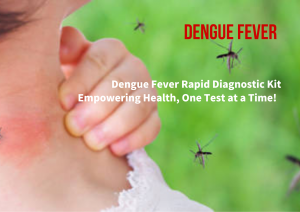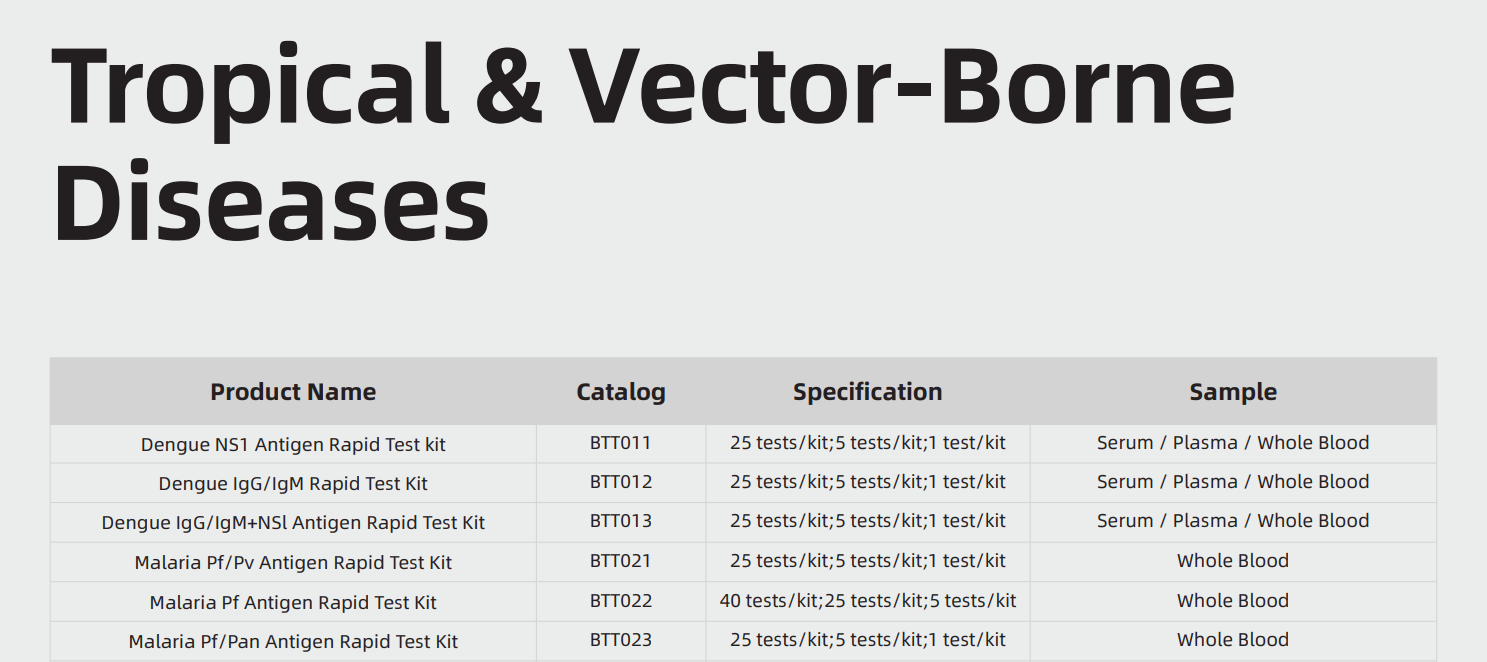Since the onset of the rainy season in Burkina Faso, the risk of dengue transmission has increased significantly due to the large number of mosquitoes breeding. Aedes aegypti is the main vector of dengue fever. The virus is transmitted to humans through the bite of an infected female mosquito. Mosquitoes usually get the virus when they feed on the blood of an infected person. After an incubation period of 4 to 10 days, infected mosquitoes can transmit the virus for the rest of their lives.
What is Dengue fever?
Dengue fever is a viral infection transmitted only through the bite of the female Aedes aegypti mosquito, with an incubation period of 3 to 14 days (average 4 to 7 days), and can infect infants and adults. Dengue fever is generally not fatal, but in a small number of cases, complications can be fatal, which is called severe dengue. With proper care, the mortality rate of severe dengue fever can be controlled below 1%.
How to tell if you have dengue fever?
If you have two or more of the following symptoms when you have a high fever, you may be infected with the dengue virus.
- Headache or sore eyes.
- Muscle pain.
- Vomiting or nausea.
- Skin rash or internal bleeding.
Considering that Burkina Faso is also a high incidence of malaria, if you have a high fever, please seek medical attention in time for blood tests to check for malaria parasites and dengue antibodies.
Symptoms of severe dengue fever may include severe abdominal pain, persistent vomiting, shortness of breath, bleeding gums, general fatigue, irritability, and bloody vomit. The next 24 to 48 hours are the critical stage of treatment, when the patient may die and appropriate care is required to avoid complications and the risk of death.
*Dengue fever disease with the decline of high fever and enter a high-risk stage, at this time should pay attention to observation.
Dengue fever high stage
This stage is the second stage of the onset of dengue fever, mainly after 3 days of fever, and is the most important risk stage.
The main symptoms are: high fever and blood extravasation of blood vessels in the body (that is, internal bleeding), especially concentrated in the chest, shoulders, and abdomen.
At this point, a blood test can be used to check for dengue fever. If you do not seek medical attention or are not tested for dengue virus in time, it can lead to shock and even death.
Three to seven days after the fever, before the onset of shock, the patient will have the following symptoms:
- Severe abdominal pain.
- Vomiting all the time.
- Symptoms such as fatigue, confusion or dizziness.
- Bleeding symptoms (including bleeding gums, nosebleeds, black vomit or stool, urethral bleeding, vaginal bleeding, etc.).
No urination for more than 5.6 hours or minimal urine output.
*The above symptoms indicate that you may enter a dangerous state such as shock at any time, please seek medical attention in time!
Prevention and treatment of dengue fever
Currently, the only way to control or prevent the spread of dengue virus is to combat its mosquito vector, including:
- Prevent mosquitoes from gaining access to spawning grounds through environmental governance;
- Proper disposal of solid waste to prevent the creation of mosquito habitats;
- Cover household water storage containers and empty and clean them weekly;
- Apply appropriate insecticides to outdoor water storage containers;
- Use personal home protection such as window screens, long-sleeved clothing, insecticide treated materials, mosquito coils and spray-on insecticides;
- Improve and mobilize community participation to achieve sustained vector control;
- Implementing emergency vector control measures, including the widespread use of pesticides, during epidemics;
- Actively monitor the vector situation to determine the effectiveness of control measures.
Product recommendation
Post time: Oct-26-2023





